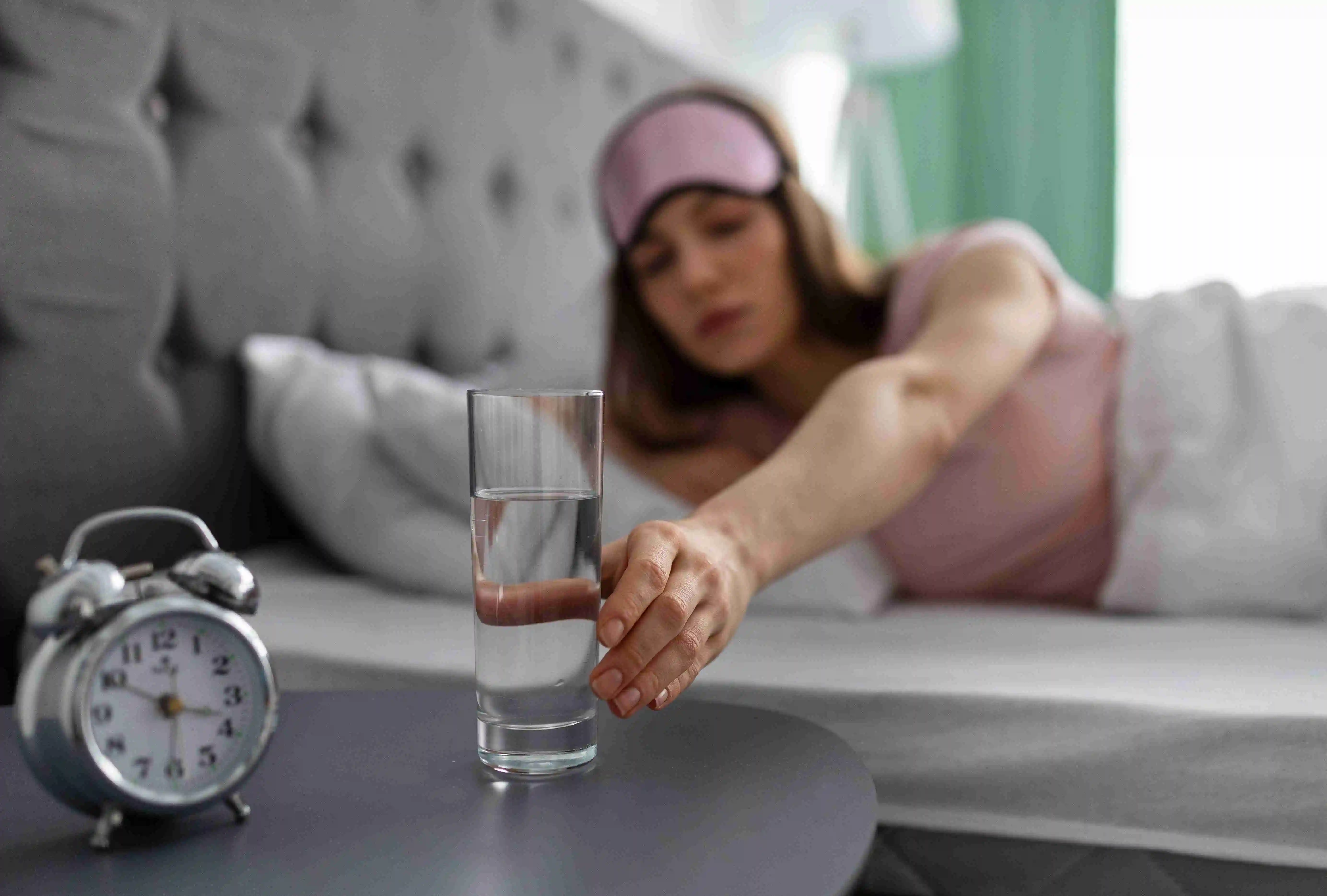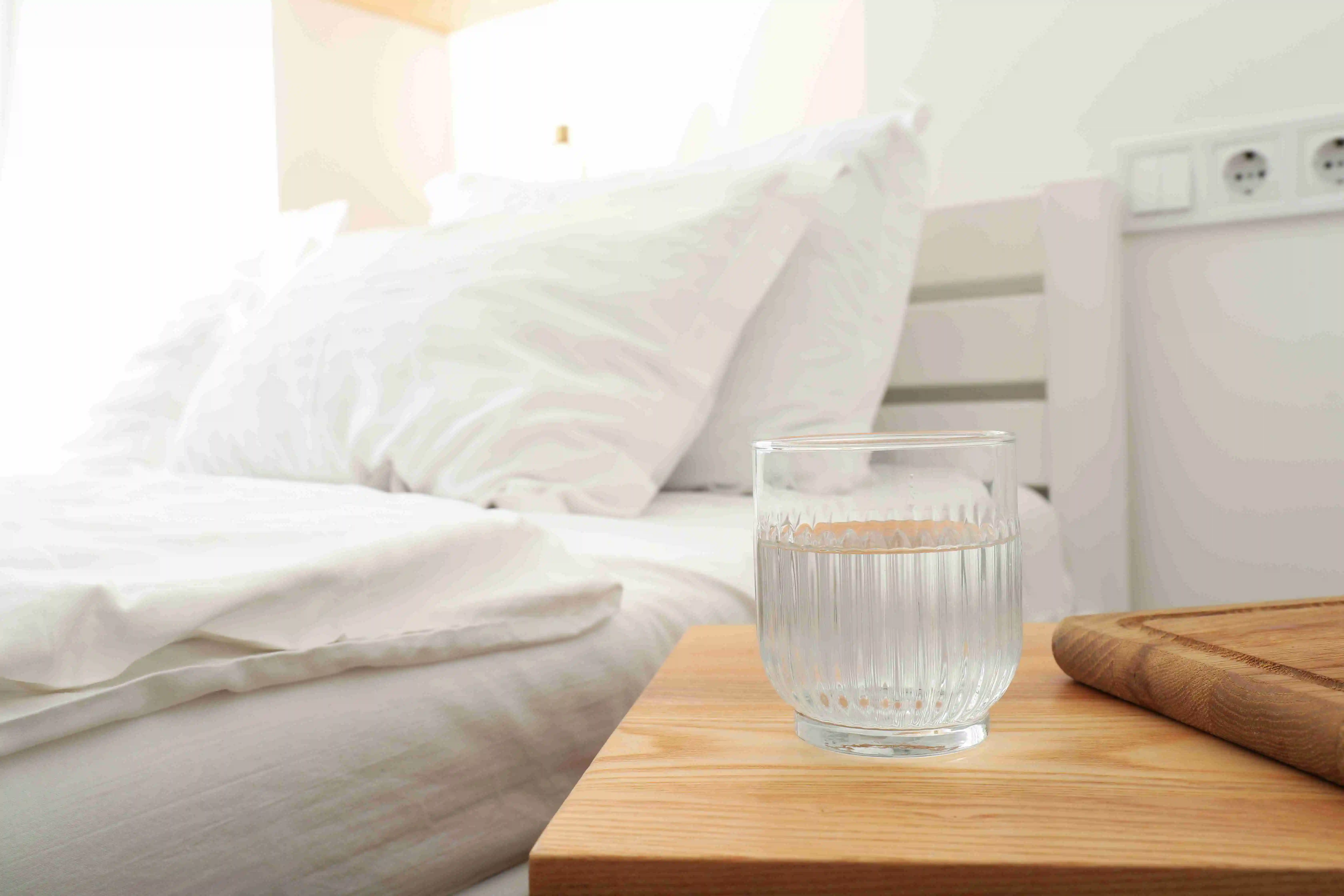Water, essential for our nutrition, is crucial for our survival and well-being. Yet, despite its fundamental importance, there's a surprising amount of misinformation circulating about hydration.
In this article, we'll delve into some of the most prevalent hydration myths and misconceptions, as well as ways to best nourish your body with this vital resource.
The Importance of Hydration
Water is the foundation of life, comprising up to 60% of our body weight. It is essential for countless bodily functions, including regulating body temperature, transporting nutrients, eliminating waste, and lubricating joints. Without sufficient hydration, our bodies cannot operate at their optimal level, leading to a cascade of adverse effects.
Dehydration, even at mild levels, can manifest in various ways, such as fatigue, headaches, muscle cramps, and impaired cognitive function. Recognizing the importance of hydration is the first step toward achieving a balanced and healthy lifestyle.
How Hydration Affects Sleep Quality

The intricate workings of our bodies determine the relationship between hydration and sleep. Our hydration status influences various physiological processes our bodies undergo during the sleep cycle.
- Hormone Regulation: Proper hydration plays a crucial role in hormone regulation during sleep. During sleep, the brain releases a hormone called vasopressin, which helps the body retain water. This hormone is part of the complex sleep-wake cycle. When you're dehydrated, it can disrupt the balance of this and other sleep-regulating hormones, potentially leading to sleep disturbances.
- Brain Function: Hydration status significantly impacts brain function, both during waking hours and sleep. During sleep, the brain goes through important processes like memory consolidation and toxin removal. Proper hydration supports these functions, potentially leading to more restorative sleep.
- Thermoregulation: Water plays a vital role in regulating body temperature, which is crucial for good sleep. As we get ready for sleep, our body temperature naturally drops a little bit, and adequate hydration aids in this process.
- Joint Comfort: Adequate hydration is essential for maintaining joint lubrication and comfort. When you're dehydrated, you may experience increased joint stiffness or discomfort, which can be particularly noticeable when trying to sleep.
- Mucus Production: Hydration status affects the production and consistency of mucus in the respiratory tract. When you're dehydrated, mucus can become thicker and more viscous, potentially leading to increased congestion or discomfort in the nasal passages and throat.
The Role of Electrolytes
While water is crucial for hydration, it's important to recognize the role of electrolytes in supporting both hydration and sleep. Electrolytes, such as sodium, potassium, and magnesium, are essential minerals that regulate various bodily functions, including fluid balance and muscle function.
Maintaining an appropriate balance of electrolytes can:
- Prevent Muscle Cramps: Electrolyte imbalances can lead to muscle cramps or spasms, which can disrupt sleep.
- Support Nerve Function: Electrolytes play a vital role in nerve conduction, impacting the body's ability to relax and fall asleep.
- Regulate Fluid Balance: Proper electrolyte levels help maintain fluid balance, preventing dehydration and supporting overall hydration.
Nighttime Urination (Nocturia)
Nighttime urination, also known as nocturia, is a common issue that can significantly disrupt sleep quality and overall well-being. While there are various causes of nocturia, including certain medical conditions and medications, dehydration can paradoxically contribute to this problem.
In the following sections, we'll delve into the best practices for staying hydrated throughout the day, so you can work towards reducing instances of nocturia and improving your overall sleep quality.
The Impact of Dehydration on Sleep And Dehydration Symptoms

Dehydration can manifest in a variety of ways that directly impact your sleep quality. Here are some common effects:
- Difficulty Falling Asleep: Dehydration can make it harder to fall asleep initially. When you're dehydrated, your body may experience discomfort such as headaches, dry mouth, insomnia, or muscle cramps, which can make it challenging to relax and drift off to sleep. Additionally, the feeling of thirst itself can be distracting and keep you awake. Proper hydration throughout the day can help alleviate these issues and promote easier sleep onset.
- Frequent Awakenings: Dehydration can lead to more frequent awakenings during the night. This is often due to feelings of thirst or the need to use the bathroom. While it might seem counterintuitive, mild dehydration can increase the urge to urinate as the body produces more concentrated urine, which can irritate the bladder. These disruptions can significantly fragment your sleep, leading to less restful nights.
- Reduced Sleep Duration: There is a strong connection between inadequate hydration and shorter sleep duration. While the exact mechanism isn't fully understood, this correlation suggests that proper hydration may contribute to longer, more sustained sleep periods.
- Decreased Sleep Quality: Even if dehydration doesn't wake you up, it can still negatively impact your overall sleep quality. Dehydration can affect the body's ability to regulate temperature, which is crucial for good sleep. It can also lead to increased fatigue and grogginess upon waking, even if you've slept for a full night. This suggests that the quality of sleep may be compromised when the body is not adequately hydrated.
- Sleep Apnea Exacerbation: For individuals with sleep apnea, dehydration can potentially worsen symptoms. Dehydration can lead to thickened secretions in the nose and mouth, which may increase congestion and make breathing more difficult during sleep. While hydration alone isn't a treatment for sleep apnea, maintaining proper fluid balance can help manage some of its symptoms and contribute to more comfortable sleep
Signs You Might Be Dehydrated

- Frequent Urination: Contrary to what you might expect, frequent urination during the night can be a sign of dehydration. When you're dehydrated, your body tries to conserve water by producing more concentrated urine. This can irritate the bladder, leading to more frequent urges to urinate. If you find yourself waking up multiple times to use the bathroom, especially if you're producing small amounts of dark urine, it could be a sign that you need to improve your hydration during the day.
- Dry Mouth and Throat: Waking up with a dry mouth or throat is a common indicator of dehydration. During sleep, your body continues to use water for various physiological processes. If you haven't consumed enough fluids during the day, you might experience this uncomfortable dryness.
- Joint Stiffness: Dehydration can affect the synovial fluid that lubricates your joints. If you wake up with unusually stiff or achy joints, especially if this isn't typical for you, it could be a sign of nighttime dehydration. This is particularly noticeable in the morning when you first start moving. Proper hydration helps maintain joint flexibility and can reduce morning stiffness.
- Headaches: Morning headaches can have various causes, but dehydration is a common culprit. When you're dehydrated, your brain can temporarily contract or shrink from fluid loss. This mechanism triggers pain receptors surrounding the brain, leading to a headache. If you frequently wake up with a headache that improves after drinking water, dehydration is likely playing a role.
- Excessive Thirst: While it's normal to feel somewhat thirsty upon waking, an overwhelming thirst can indicate that you went to bed dehydrated. If you find yourself immediately reaching for water and feeling like you can't get enough, it's a clear sign that your body is trying to replenish lost fluids. This excessive thirst can disrupt your sleep and leave you feeling unrested in the morning.
- Fatigue and Dizziness: Dehydration can lead to a drop in blood volume, which means less oxygen is delivered to your brain and muscles. This can result in feelings of fatigue or dizziness upon waking. If you feel unusually tired or lightheaded in the morning, despite getting adequate sleep, dehydration might be the cause. Proper hydration helps maintain blood volume and supports overall energy levels.
- Muscle Cramps: Nighttime or early morning muscle cramps, particularly in the legs, can be a sign of dehydration. When you're dehydrated, there's an imbalance of electrolytes like sodium and potassium in your body. This imbalance can cause muscles to contract involuntarily, leading to painful cramps. If you frequently experience muscle cramps during sleep or upon waking, it might be time to reassess your hydration habits.
Optimal Hydration Practices for Better Sleep

Maintaining proper hydration levels throughout the day can be a challenge, especially in our busy modern lives. Here are some practical tips to help you stay hydrated:
- Carry a Reusable Water Bottle: One of the most effective ways to ensure consistent hydration is to always have water readily available. Invest in a reusable water bottle that you can carry with you throughout the day. This not only serves as a constant reminder to drink water but also makes it convenient to stay hydrated wherever you are.
- Set Reminders: In our busy lives, it's easy to forget to drink water regularly. Utilize technology to your advantage by setting hydration reminders on your phone or smartwatch. These gentle nudges throughout the day can help you maintain a consistent hydration schedule.
- Consistent Hydration: Rather than consuming large amounts of water at once, aim for consistent hydration throughout the day. This approach helps your body maintain a steady state of hydration, which is beneficial for various bodily functions, including those that affect sleep quality.
- Avoid Gulping: When you do drink water, avoid gulping large amounts quickly. Instead, take smaller sips and drink slowly. This method allows your body to absorb the water more effectively and reduces the likelihood of feeling uncomfortably full or needing frequent bathroom trips.
- Avoid Excessive Intake: While staying hydrated is crucial, it's equally important not to overdo it, especially as bedtime approaches. A good rule of thumb is to stop drinking large amounts of fluids about 2–3 hours before bedtime, allowing your body time to process and eliminate excess fluids before sleep.
- Limit Caffeine and Alcohol: Both caffeine and alcohol can have diuretic effects, potentially leading to dehydration. Caffeine, found in coffee, tea, and some sodas, can also interfere with sleep when consumed too close to bedtime. Try to limit caffeine and alcohol intake to the morning hours and avoid them entirely after mid-afternoon.
- Infuse Your Water: If you find plain water unappetizing, try infusing it with natural flavors to make it more enjoyable. Add slices of lemon, lime, cucumber, or berries to your water for a refreshing twist. Herbs like mint or basil can also add an interesting flavor profile.
- Eat Water-Rich Foods: Hydration doesn't just come from what you drink; many foods can contribute significantly to your daily fluid intake. Incorporate water-rich foods into your diet, such as cucumbers, watermelon, zucchini, and tomatoes.
- Monitor Your Urine Color: One of the simplest ways to gauge your hydration status is by monitoring the color of your urine. Ideally, your urine should be a pale yellow color, similar to lemonade. If it's darker, like apple juice, it might indicate that you need to increase your fluid intake. However, very clear urine might suggest overhydration.
Best ways to stay hydrated
While staying hydrated throughout the day is essential, there are specific times when hydration can have a more significant impact on your sleep quality:
- Morning: Start your day by drinking a glass of water or herbal tea. This kickstarts your hydration levels and sets the tone for the rest of the day.
- Afternoon: Aim to drink water or other hydrating beverages during the afternoon slump, when dehydration can contribute to fatigue and decreased productivity.
- Evening: Hydrate a few hours before bedtime to ensure your body is well-hydrated as you prepare for sleep. Avoid excessive fluid intake right before bed to prevent disruptions from frequent bathroom trips.
Best Foods and Drinks that Promote Better Hydration
While water is the ultimate hydration source, certain foods and beverages can contribute to better hydration and support a restful night's sleep:
- Water-Rich Fruits and Vegetables: Cucumbers, watermelons, strawberries, tomatoes, and leafy greens are excellent sources of water and essential nutrients.
- Herbal Teas: Caffeine-free herbal teas, such as chamomile, lavender, or valerian root, can promote relaxation and aid in better sleep.
- Coconut Water: Rich in electrolytes, coconut water is a natural and refreshing hydration option.
- Milk and Dairy Products: Milk and yogurt contain fluids and minerals that support hydration and sleep-promoting nutrients like tryptophan.
- Soups and Broths: Warm soups and broths can be hydrating and comforting, especially before bedtime.
Common Hydration Myths and Misconceptions
- How much water should you drink a day: This widely-cited recommended water intake is a myth. The amount of water needed varies greatly between individuals based on factors like activity level, climate, and overall health.
- Thirst is the Best Indicator of Hydration: While thirst is certainly an important signal, it's not always the most reliable indicator of hydration status. By the time you feel thirsty, you may already be mildly dehydrated.
- Drinking Water Flushes Toxins from Your Body: This is a common misconception. While staying hydrated is important for overall health, including kidney function, simply drinking more water doesn't "flush out toxins".
- Cold Water is Bad for Digestion: There's no scientific evidence to support the claim that cold water impairs digestion. The body quickly warms any consumed liquid to body temperature.
- Drinking Water Before Meals Helps with Weight Loss: While there is some evidence that drinking water before meals can help with weight loss, it's not a magic solution. Drinking water before meals can lead to reduced calorie intake during the meal, potentially aiding in weight loss.
FAQs
How much water should I drink daily for optimal hydration and sleep? How to stay hydrated
The recommended daily water intake can vary based on factors like age, gender, activity level, and climate. However, a general guideline is to aim for at least 8 cups (64 ounces) of water per day, adjusting as needed based on your individual needs.
Can you drink too much water before bed to disrupt sleep?
Excessive fluid intake right before bedtime can lead to frequent bathroom trips, disrupting your sleep. It's best to hydrate moderately a few hours before bedtime and limit fluid intake closer to your sleep time.
Are there any specific signs of dehydration that can impact sleep?
Some common signs of dehydration that can affect sleep include dry mouth, muscle cramps, headaches, and fatigue. Monitoring your urine color and addressing these symptoms can help improve your hydration levels and sleep quality.
Can certain medical conditions or medications affect hydration and sleep?
Yes, some medical conditions, such as diabetes, kidney disease, or certain medications, can impact hydration levels and sleep quality. It's important to consult with a healthcare professional to address any underlying issues and develop a personalized hydration plan.
Can hydration levels impact sleep quality for children or the elderly?
Yes, proper hydration is crucial for individuals of all ages. Children and the elderly may be more susceptible to dehydration and its effects on sleep due to their physiological needs and potential challenges in regulating fluid balance.
Conclusion
Being properly hydrated is not as simple as following a one-size-fits-all rule. The human body is complex, and its hydration needs can vary greatly depending on individual factors such as age, activity level, climate, and overall health.
By staying informed and approaching hydration with a balanced perspective, you can ensure that you're giving your body the fluid it needs to function at its best.
Helene Josephine Duun
Helene Josephine Duun is a medical anthropologist who specializes in public health research and communication. Always seeking a deeper understanding of how cultural values and practices influence health outcomes, she co-designs solutions with diverse groups to form collaborative partnerships that are responsive to changing needs. As an advocate for holistic health literacy, she also raises awareness of the vital role of quality sleep in overall health and well-being.


